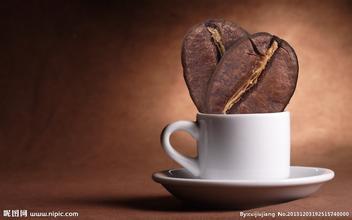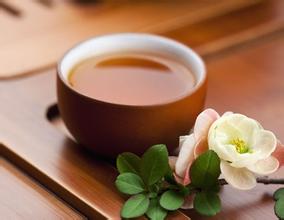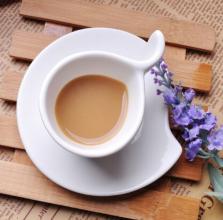The price difference of raw and cooked beans in the chaotic Blue Mountain Coffee Market is ten times.
A real Blue Mountain Coffee is in the triple digits, but as an advertisement said, not all milk can be called × × ×, and not all Blue Mountain beans can produce the flavor that Blue Mountain Coffee should have. Because the real flavor of Blue Mountain Coffee is the combination of beans and processing technology, rather than simply imported Blue Mountain beans.
Market
The difference between the same blue mountain raw beans and cooked beans is ten times.
China accounts for 15% of total consumption
For a long time, Blue Mountain Coffee is like a god in China, and almost every coffee shop must claim to have Blue Mountain Coffee. It's just that not many people really use blue mountain beans. According to Jamaica Coffee Bureau export statistics as of 2004, 85% of the limited Blue Mountain coffee bean quotas were exported to Japan, 5% to the United States, 5% to Europe and 5% to other countries. However, China accounts for 15% of the global consumption and distribution of authentic Jamaican Blue Mountain coffee, according to the International Coffee Association. This is because some shares of Blue Mountain coffee in Japan, Australia and Europe are exported to China through direct branches.
Blue mountain beans are bigger than ordinary coffee beans.
Raw beans are not easy to supervise.
However, some of the blue mountain coffee beans entering China are raw beans, that is, unprocessed coffee beans, while others are ripe beans processed by four local legal processing plants in the Blue Mountains of Jamaica. However, according to Mr. Liang, president of the Guangzhou Coffee Association, the price difference between raw and cooked beans in Lanshan Coffee is nearly ten times. Because the blue mountain coffee beans in addition to pay attention to the origin of origin, but also pay great attention to its processing methods. If you import raw beans, on the one hand, you can not enjoy the perfect flavor of Blue Mountain Coffee, on the other hand, it is easy to be mixed with other coffee beans by imported traders, and the intermediate link can not be supervised.
Analysis
Together in the Blue Mountains
The height is not high enough to be called "Blue Mountain".
Blue Mountain Coffee must be certified
In Jamaica, exported Blue Mountain coffee beans must be inspected and certified by the coffee shop before they can be allowed to be exported. At the same time, they must use the Blue Mountain coffee trademark registered by the coffee bureau in more than 20 countries around the world to be truly authentic Jamaican blue mountain coffee beans. Among them, the Jamaica Coffee Bureau stipulates that Blue Mountain Coffee must be grown in the legal Blue Mountain Coffee area before it can be called real Jamaican Blue Mountain Coffee. It is authorized to use the coffee bureau registered trademark: Blue Mountain Coffee.
Brewed Blue Mountain Coffee products
Below 3000 feet is "Alpine Coffee."
The legendary Blue Mountain is on the eastern side of the island of Jamaica, with a total altitude of 7402 feet. Only at an altitude of 3000ft to 5000ft can a balanced and slightly sour Blue Mountain Coffee be grown, and only in the Blue Mountain area at this altitude can the grown Blue Mountain Coffee be considered to be 100% Jamaica Blue Mountain Coffee. The coffee grown below 3000 feet above sea level is alpine coffee, which is authorized to use High Mountain Coffee. The total amount of alpine coffee grown is five times that of Blue Mountain coffee, and most private estates grow alpine coffee for export and domestic sale as a tourism specialty. As for the blue mountain area above 5000 feet above sea level, the jungle is dense and is not suitable for any crop.
Brewing has certain requirements on water temperature.
Taste evaluation
Blue Mountain also needs to talk about its origin.
Just like red wine to talk about the famous village, Blue Mountain Coffee is also particular about the origin of the manor, the processing level of the famous village is much better than other processing plants, known as the legal manor.
What is a statutory manor? In the Jamaican Coffee Industry Regulation, the Jamaican Coffee Authority authorizes several large estates to centrally process coffee fruits, export Blue Mountain coffee beans and use the Blue Mountain Coffee trademark to safeguard the reputation and quality of Blue Mountain Coffee.
According to the Jamaican coffee regulations, high-quality coffee fruits must be peeled by finger pressure, and more than 2% of green or immature coffee fruits are not allowed to be selected and stored; coffee fruits are not allowed to be stored in metal or plastic containers, such as plastic film, fertilizer bags or sealed containers, as this accelerates the fermentation of coffee fruits; avoid storing coffee fruits in water, as water accelerates the splitting of coffee fruits At the same time, the coffee fruit should go through the water floating procedure in the manor, and whether it meets the water floating requirements should be re-tested before storage to ensure that the process is completed in the manor; when conducting the water flotation test, follow the principle of random sampling, extracted from a bag or box of coffee fruits; then qualified coffee fruits need to be stored for 24 hours. In the process of peeling and washing coffee fruit, it takes 50 gallons of water for every 1.5 cubic feet of coffee fruit, and so on. As for baking, it is more exquisite, which is medium baking, but the baking technology is confidential.

Important Notice :
前街咖啡 FrontStreet Coffee has moved to new addredd:
FrontStreet Coffee Address: 315,Donghua East Road,GuangZhou
Tel:020 38364473
- Prev

How will the establishment of a coffee trading center in Chongqing, which does not produce coffee, change China's coffee industry?
Although it is not a traditional coffee growing base and is located in inland areas, Chongqing recently set up a coffee trading center and announced that it would build the country's largest coffee entrepot trade base. Only half a month after its establishment, Chongqing Coffee Trading Center has shown great attraction and has signed intention agreements with more than 200 domestic and foreign coffee enterprises. Industry insiders say that the broad prospects of the coffee market
- Next

Four kinds of Vietnam G7 Central Plains coffee comparison
The coffee I bought in Vietnam was also fake, and more importantly, I thought the fake was delicious, and then I bought G7 online for the first time. The result was fake again, so I didn't drink it. It wasn't until the second purchase that I thought about whether this thing was fake, so I changed to another one. In the process of changing, I also searched a lot on the Internet. I can only say that the G7 in Crown Store is also fake, and the buyer's evaluation is only
Related
- What is the difference between Indonesian Sumatra Mantinin coffee and gold Mantinin? How to distinguish between real and fake golden Mantelin coffee?
- What does bypass mean in coffee? Why can hand-brewed coffee and water make it better?
- Unexpected! Ruixing Telunsu lattes use a smoothie machine to foam milk?!
- % Arabia's first store in Henan opens into the village?! Netizen: Thought it was P's
- Does an authentic standard mocha coffee recipe use chocolate sauce or powder? Mocha Latte/Dirty Coffee/Salty Mocha Coffee Recipe Share!
- What is the difference between Vietnam egg coffee and Norway egg coffee? Hand-brewed single product coffee filter paper filter cloth filter flat solution!
- What is the difference between sun-cured and honey-treated coffee? What are the differences in the flavor characteristics of sun-honey coffee?
- How to make Italian latte! How much milk does a standard latte use/what should the ratio of coffee to milk be?
- How to make butter American/butter latte/butter Dirty coffee? Is hand-brewed coffee good with butter?
- Is Dirty the cold version of Australian White? What is the difference between dirty coffee/decent coffee and Australian white espresso?

